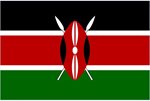Katie Farkouh
 Katie is a second-year medical student at SUNY Upstate Medical University Norton College of Medicine. Her passions focus on the intersection between global health, refugee health, maternal health and pediatrics. She recently graduated from Harvard College, where her major in Human Evolutionary Biology and minor in Global Health and Health Policy allowed her to pursue these interests, leading her to medical school. Her Syrian heritage has also played a crucial role in shaping her life, and she aspires to give back to this community as a future physician. As a daughter of Syrian immigrants, Katie has witnessed the various barriers and disparities within healthcare in global settings. She strives to work with global and refugee populations to alleviate these disparities. Throughout her time in medical school, Katie has been interning at a global non-profit focused on maternal healthcare, tutoring young students in the Refugee and Immigrant Self-Empowerment program, organizing the Refugee Health Literacy Program and conducting clinical research. She is immensely grateful for the Kean Fellowship opportunity to further pursue her passion for global health equity.
Katie is a second-year medical student at SUNY Upstate Medical University Norton College of Medicine. Her passions focus on the intersection between global health, refugee health, maternal health and pediatrics. She recently graduated from Harvard College, where her major in Human Evolutionary Biology and minor in Global Health and Health Policy allowed her to pursue these interests, leading her to medical school. Her Syrian heritage has also played a crucial role in shaping her life, and she aspires to give back to this community as a future physician. As a daughter of Syrian immigrants, Katie has witnessed the various barriers and disparities within healthcare in global settings. She strives to work with global and refugee populations to alleviate these disparities. Throughout her time in medical school, Katie has been interning at a global non-profit focused on maternal healthcare, tutoring young students in the Refugee and Immigrant Self-Empowerment program, organizing the Refugee Health Literacy Program and conducting clinical research. She is immensely grateful for the Kean Fellowship opportunity to further pursue her passion for global health equity.

Feeding Practices in Infants Four to Twelve Months of Age in a Rural Community in Kisumu, Kenya
Kisumu, Kenya
What does the Kean Fellowship mean to you?
I am deeply honored to receive the Kean Fellowship, and I look forward to this opportunity to learn from health leaders and institutions in Kisumu, Kenya, along with my project mentors, community members and ASTMH. This is an incredible opportunity to conduct impactful work in resource-limited areas in order to address the health needs of local communities and build the capacity of local health systems. Tropical medicine and global health has been one of my long-term career goals and I am beyond excited to pursue this opportunity through this fellowship. I hope that this experience will prepare me with the knowledge and foundation to continue this type of work in the future.
What do you anticipate learning?
My research project through this fellowship will assess the prevalence of animal milk use in non-breastfed infants in Kisumu, Kenya, in an effort to understand and address risk factors for malnutrition. By working closely with my mentors and local healthcare partners, I hope to use these questionnaire and data findings to inform public health interventions for infants in the region. I anticipate learning about healthcare through a new lens. I am truly looking forward to expanding my knowledge with regards to community healthcare planning, capacity building, policy development, health systems administration and management, and tropical diseases.
What interests you about tropical medicine and what problems are you interested in solving?
Tropical medicine focuses on a variety of complex diseases, many of which are preventable through access to adequate care, increased research and provision of safe water, sanitation and hygiene. As climate change rapidly increases the spread and prevalence of vector-borne illnesses and non-communicable diseases, tropical medicine is becoming of even greater importance. I am profoundly interested in this field and hope to help develop tools to significantly prevent and alleviate the burden of tropical diseases. Tropical medicine research can inform healthcare administration and health policy, and I really enjoy this intersectionality between science and clinical practice.
I am also deeply passionate about health equity, and I hope to work toward expanding healthcare access among vulnerable global communities. Social determinants of health disproportionately affect vulnerable populations in low- and middle-income countries, leading to poorer health outcomes, increased physical and mental illnesses, and mortality from preventable diseases. Tropical regions face unique health challenges that must be addressed through an individualized, community-based manner. Being part of the solution requires properly assessing a region’s needs, immersing oneself into the community and cooperatively creating long-term, sustainable health solutions. Through this opportunity and my future endeavors, I aim to contribute to these solutions to alleviate global health disparities. Global communities in resource-limited areas have shaped a large part of my life and have provided me with insight to existing barriers to accessing quality healthcare among vulnerable populations. My hope is to return to these communities, confident that I will improve their health and health equity through my work in global health and tropical medicine.